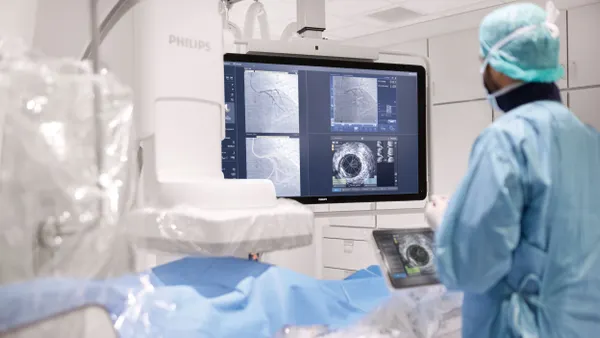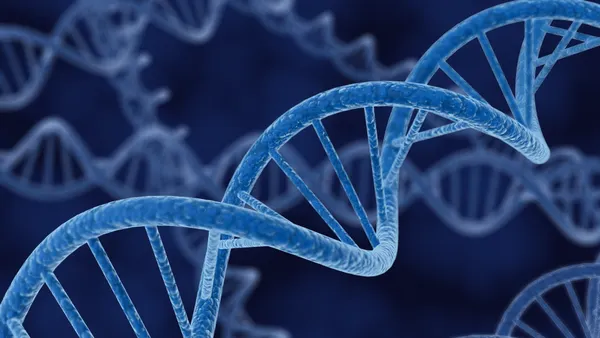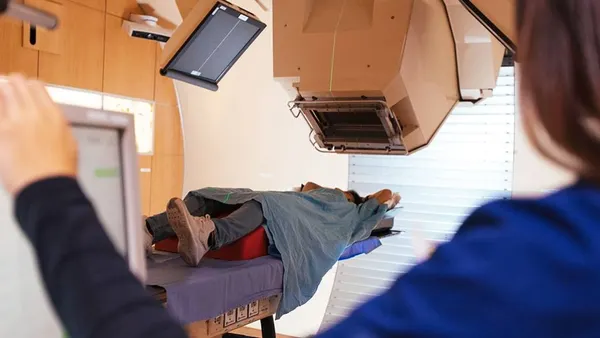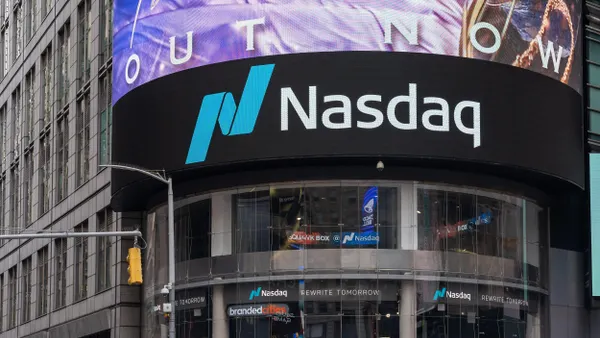Dive Brief:
-
Grail on Wednesday filed with the U.S. Securities and Exchange Commission to raise up to $100 million in an initial public offering ahead of the anticipated launch of its multi-cancer liquid biopsy screening test for use in asymptomatic individuals.
-
The Illumina spinout expects to launch the product, Galleri, as a lab developed test (LDT) in 2021. Based on data generated to date, Grail estimates screening people aged 50 years and older using Galleri could avert 39% of deaths from cancers that would otherwise kill within five years.
-
Grail’s SEC filing acknowledges that getting insurers' support for asymptomatic screening could be challenging. Yet, with $686 million in the bank as of June 30 and more to come from the IPO, the company believes it has the resources to ride out near-term challenges and establish itself as a force in the nascent liquid biopsy market.
Dive Insight:
Grail spun out of genome sequencing giant Illumina at the start of 2016 with the support of backers including ARCH Venture Partners, Bezos Expeditions and Bill Gates. Over the next few years, Grail raised a series of big financing rounds to fund a huge R&D program that saw it enroll 115,000 people across its foundational studies, with IPO rumors swirling along the way. While other liquid biopsy startups focused on detecting a single cancer, Grail set out to create a single test that screens for tens of tumors.
The work has now advanced to the point that Grail is gearing up for commercialization. If all goes to plan, the company will introduce Galleri and a test to “accelerate diagnostic resolution for patients for whom there is a clinical suspicion of cancer” first as LDTs next year before seeking FDA approval in 2023.
After bringing Galleri to market, Grail will push for the test’s integration into the management of the 40 million patients who already visit their physicians for standard-of-care cancer screening. Grail is pitching the test as a way to detect cancers earlier and, in doing so, reduce morbidity, mortality and costs associated with late-stage diagnoses.
Yet, the risk of false positives could mean Grail faces pushback from insurers hesitant to back the cost of additional diagnostic workup, the company outlined in its preliminary prospectus. Grail will try to counter those concerns with evidence of the value of its test, pointing to modeling that suggests Galleri may “detect nearly 70% of cancers resulting in death within five years at an earlier stage.” That would translate into the aversion of 39% of otherwise expected deaths.
Grail’s calculations are based on a study in which Galleri detected more than 50 cancers, including more than 45 types that are not explictly recommended for screening today. The study linked Galleri to a positive predictive value of 43% and found it would yield 7,000 false positives per million tests. That compares favorably to existing single-cancer screening tests such as mammograms.
Researchers at Grail achieved that level of performance by zeroing in on methylation patterns that indicate the presence and location of a cancer. Further work led to a targeted approach, eliminating the need to perform costly whole-genome methylation.
Other liquid biopsy companies have factored elements other than methylation into their tests. For example, Freenome, which raised $270 million last month, also looks at immune DNA signatures. The Form S-1 states Grail is assessing “multi-omic approaches including evaluation of additional analytes and biofluids” but is confident its existing approach can detect low level signs of cancer in the blood.
Some of the money from the IPO, which has a placeholder fundraising target of $100 million, will support such ongoing development work but the focal point is commercial preparations. Grail put another piece of the preparations in place in June when it leased space in North Carolina to add to its capacity. COVID-19 could disrupt the build, the paperwork warns, leaving Grail reliant on its existing site in California that may be unable to meet demand.
How much demand Galleri generates will partly depend on the success of Grail’s rivals. The IPO filing named Guardant Health, Exact Sciences, Freenome, Thrive Earlier Detection and ArcherDX among its competitors, several of which have tested liquid biopsies in studies of more than 10,000 people. However, Grail sees itself as partly insulated from competition, stating that not “many companies would have the financial resources to invest in population-scale clinical trials and rigorous analytics to compete with our products."










